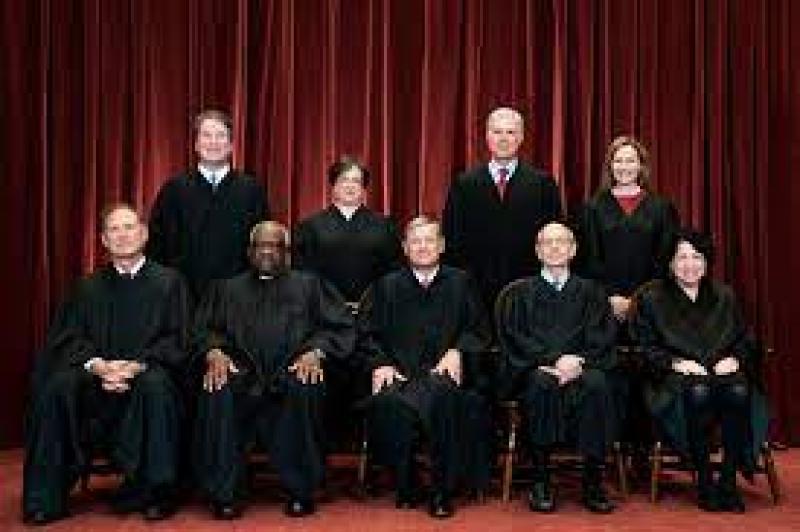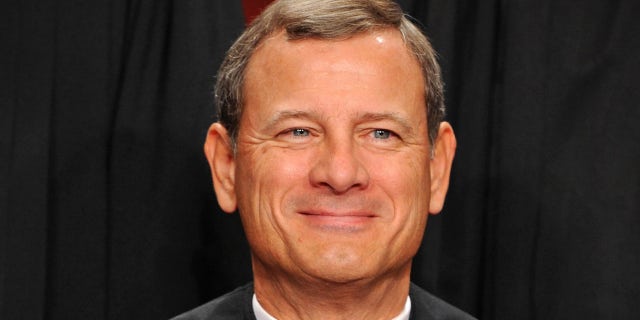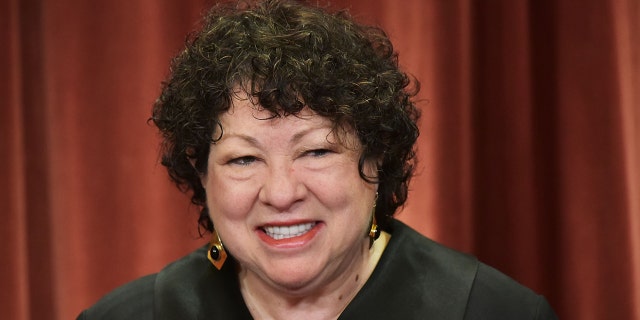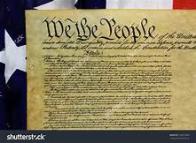Supreme Court says California rule requiring nonprofits to reveal donor names is unconstitutional
By: Tyler Olsen


Great news. Two very good rulings by the court today. It will be great to be able to donate to certain causes again without fear of being outed and cancelled by progressive bigots. Also the clearing of Arizona election law pretty much renders moot the claims of house and senate bills number 1. A great day for freedom loving Americans!

Supreme Court says California rule requiring nonprofits to reveal donor names is unconstitutional
Supreme Court ruling is a victory for conservative nonprofits
The Supreme Court ruled Thursday that a California law requiring nonprofits to reveal the names of their major donors to the government is "facially unconstitutional."
The 6-3 ruling came on the final day of a term that has seen the justices take a noticeably unified approach to a number of hot-button issues. But on the final day of the term, the court issued two rulings divided along ideological lines. Chief Justice John Roberts was joined by the five other Republican-appointed justices in siding with the conservative nonprofit groups that challenged the California law.
"We do not doubt that California has an important interest in preventing wrongdoing by charitable organizations," Roberts wrote in the leading opinion. "There is a dramatic mismatch, however, between the interest that the Attorney General seeks to promote and the disclosure regime that he has implemented in service of that end."

Chief Justice John Roberts smiles for the cameras as the nine members of the Supreme Court pose for a new group photograph on October, 08, 2010 in Washington, DC. (Photo by Bill O'Leary/The Washington Post via Getty Images)
SUPREME COURT UPHOLDS ARIZONA VOTER FRAUD PROTECTIONS
The conservative groups who sued against the California law – Americans for Prosperity Foundation and the Thomas More Law Center – said that the First Amendment's protection of freedom of association because the disclosure requirements created a "chilling effect" on speech and "actual and potential" donations. California, meanwhile, said it asks charities to submit their IRS 990 Schedule B forms to the state for critical law enforcement purposes and that the forms will not be made public, so there is therefore no reason to worry about chilling speech.
The court sided with the conservative groups, saying that such disclosure requirements infringe on the First Amendment.
"Our cases have said that disclosure requirements can chill association'[e]ven if there [is] no disclosure to the general public," Roberts wrote. "While assurances of confidentiality may reduce the burden of disclosure to the State, they do not eliminate it."
Justice Sonia Sotomayor led the dissent. She said the nonprofits did not sufficiently prove that their donors were at risk of harassment or public disclosure, and warned that the court's decision could harm future regulatory efforts.
The court, Sotomayor said, "discards" its typical requirement "that plaintiffs demonstrate an actual First Amendment burden before demanding that a law be narrowly tailored to the government’s interests, never mind striking the law down in its entirety."

Associate Justice Sonia Sotomayor poses in the official group photo at the US Supreme Court in Washington, DC on November 30, 2018. Sotomayor lead the dissent to a Thursday Supreme Court decision striking down a California law that required nonprofits to disclose their largest donors to the state. (MANDEL NGAN/AFP via Getty Image
"Today’s analysis marks reporting and disclosure requirements with a bull’s-eye," she added. "Regulated entities who wish to avoid their obligations can do so by vaguely waving toward First Amendment 'privacy concerns.'"
The opinion follows the court releasing its decision on a challenge to Arizona's election laws Tuesday and marks the end of its 2020-2021 term. And it comes at the height of speculation that Justice Stephen Breyer could step down, potentially opening a Supreme Court seat for President Biden to fill.
Most experts expect that announcement to come before the end of the week or else Breyer is likely to stay on for the court's next term, which begins in October.







Living in California and having seen what happens when progressives get a hold of a donors list to a conservative cause and everyone on the list gets outed and canceled this ruling was a must. No longer can liberal interest groups use the threat of public outings to dissuade conservatives from giving to socially conservative non profits.
Why are they secret to begin with ?
1st and 4th amendment rights come to mind here. You have no constitutional right whatsoever to know what groups I contribute money to and Vice versa.
The ACLU, NAACP, and many groups from left to right were all on the side the court ruled in favor of.
NICE ruling. Now the DNC can pull all the cash they need from China! /s
As much as some defend that brutal regime at every turn, they are not a non profit organization.
Dark money is dark money. What's to stop foreign entities from fighting a proxy war behind the RNC & DNC cash funding?
You didn't answer my question.
Never does and never will.
There are other ways to combat dark illegal money. Trampling upon the privacy of the individual donor is not one of them.
Too bad, I think non profit donors should be public knowledge ESPECIALLY if they are trying to gain/maintain tax exempt status.
This was the right ruling. Government got the donor list back in 2009 or 2010 regarding contributions to a non profit involved in the pro proposition 8 campaign from 2008. They leaked it to a liberal interest group that then went out and targeted donors with protests at their homes, trying to get them kicked out of schools and social settings, and fired from their jobs. They even protested businesses that simply had a donor working there. That is unacceptable in America and our political system. Today’s ruling makes that kind of intimidation and bullying impossible, illegal, and unconstitutional.